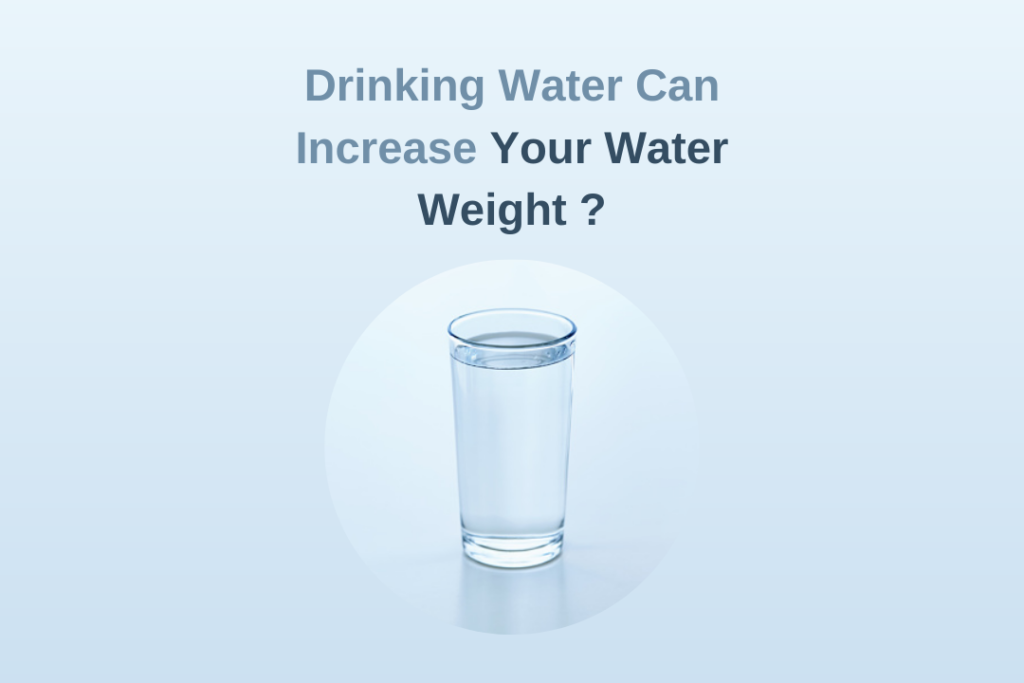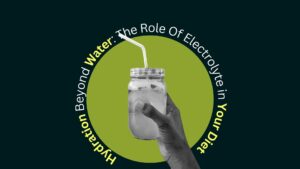
Mubashshira
Bariatric Dietician & Content Writer

Drinking Water Can Increase Your Water Weight ?

Water makes up a majority of your body weight and is involved in many important functions. Getting enough water every day is important for your health. Drinking water can prevent dehydration, a condition that can cause unclear thinking, result in mood change, cause your body to overheat, and lead to constipation and kidney stones. Water has no calories, so it can also help with managing body weight and reducing calorie intake when substituted for drinks with calories, such as sweet tea or regular soda.
Water helps your body:
Keep a normal temperature.
Lubricate and cushion joints.
Protect your spinal cord and other sensitive tissues.
Get rid of wastes through urination, perspiration, and bowel movements
Your body needs more water when you are:
In hot climates.
More physically active.
Running a fever.
• Having diarrhoea or vomiting.
Nutrition -
Everyone should consume water from foods and beverages every day. Although there is no recommendation for how much plain water everyone should drink daily, there are recommendations for how much daily total water intake should come from a variety of beverages and foods. Daily total water intake (fluid) is defined as the amount of water consumed from foods, plain drinking water, and other beverages.
Daily water intake recommendations vary by age, sex, pregnancy status, and breastfeeding status. Most of your fluid needs are met through the water and other beverages you drink. You can get some fluids through the foods that you eat, especially foods with high water content, such as many fruits and vegetables. Drinking water is one good way of getting fluids as it has zero calories.
Weight gain is usually caused by hormonal changes, especially when you’re menstruating or expecting a baby; it can sometimes be caused by certain medications too. Yet if that’s not the case and you’re still gaining weight quickly, it can actually be water weight, which is the medical term for fluid retention or edema weight.
The majority of the human body is made up of water. You can feel heavier than usual if your hydration levels are out of balance since your body will hold onto that water. Edema, also known as water retention, is the abnormal buildup of fluid in the tissues and cavities of an individual. It can result in alarming symptoms such as swelling of the hands, feet, ankles, and legs.
It is a typical health issue that typically happens every day. Water retention can also occur, when excess fluids build up in the body are not removed efficiently by the circulatory system, kidneys or lymphatic system that help maintain healthy fluid levels in the body.
What causes water retention?
Too much sitting
Not drinking enough amount of water
Standing for a longer period of time
Menstruation
High consumption of sodium
Certain medication
Pregnancy
Hot weather conditions
What can reduce water retention
Potassium and magnesium rich food – banana, tomato, spinach, avocado
Enough protein
Elevate you feet
Compression socks
Vitamin B6 rich foods – peanuts, soybean, oats
Exercise
Natural diuretic – parsley, barley, cucumber, cabbage
Followings are some Suggestions to avoid Dehydration
Start drinking water first thing in the morning. Then, sip on it every hour throughout your day rather than waiting until the end of the day to “catch up” on your water intake.
Don’t drink water with meals. Drink water and eat meals at separate times to help keep you from filling up too quickly and missing out on essential nutrients. Bariatric patients should separate eating and drinking by at least 30 minutes.
Carry water with you at all times, whether you’re at work, in the car or out and about.
Sip slowly. Drinking too fast, or gulping can cause stomach pain, bloating and other problems like nausea or vomiting.
Drink frequently throughout the day.
Measure your fluids and keep track of the number of litres of water you’re drinking each day.
Set a timer to go off every 30 minutes to remind you to take a sip of water.
Avoid carbonation. The bubbles in carbonated drinks can cause discomfort and bloating.
Mix things up by flavouring your water with lemon, cumin, fennel, buttermilk or orange.
Understand the importance of water to prevent water retention and arm yourself with these tips to help you stay hydrated and avoid a return trip to the hospital after weight gain. If you are struggling to get in enough.







